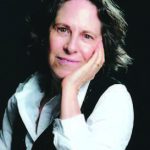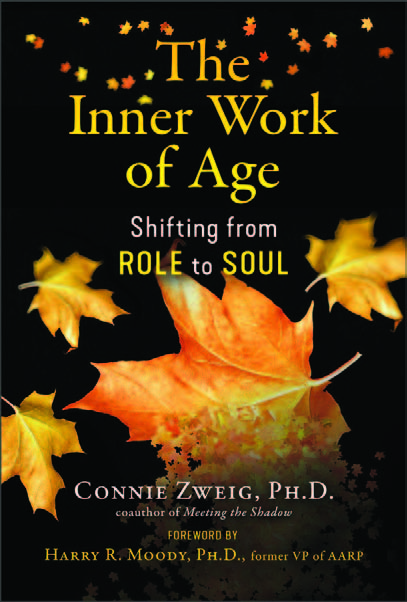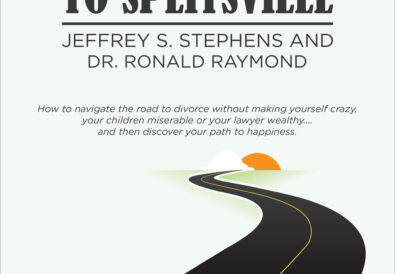Recently, I lost one of my best friends to cancer. Cindy’s death left me sitting in a well of grief—but not for the reason you might think. Cindy was a student of Swami Muktananda, who brought Siddha Yoga to the West. She was heartbroken when she learned that he had seduced female students, and the scandal was covered up.
Later, she followed Swami Vishwananda and attained a high stage of witness awareness and inner bliss. But when his sexual acting out and lies came out, she was devastated once more. Cindy’s projection of the light onto a mortal person led her to meet spiritual shadow and profound disillusionment.
When she was diagnosed with cancer, she initially maintained her level of awareness. But after chemo, her body full of toxins and her brain foggy, she lost that awareness and reverted to an earlier stage of development. Eventually, near death, she no longer knew what she believed or whether her practices meant anything at all. She faced death with feelings of anger and betrayal at God.
I was able to help her complete legal and medical unfinished business. But I was unable to help her complete spiritual unfinished business by accepting the human fallibility of her teachers, along with their gifts. I was unable to help her reclaim the spiritual projections she had given away and bring the light back into her own circle. And that is the source of my sorrow: Cindy did not die in peace.
The soul’s yearning for transcendence carries many of us toward spiritual community and contemplative practice. But many also suffer betrayal by religious clergy, gurus, even yoga teachers, which leads to spiritual despair and a shattering of our belief systems.
Later in life, as we seek to become Elders, we need to complete spiritual unfinished business in three ways: reexamine our beliefs, reimagine our images of the divine, and reconnect with a practice that fits who we are now.
1. In midlife and beyond, it’s vital to contemplate what we believe about the divine, what we most cherish and most highly value. If we reflect on our past beliefs, we can revise them if they no longer serve our development. We create a late-life philosophy that’s unique to our own journey and that reorients us to life in the face of impending death.
We ask: Are we connected to something larger than ourselves? Is it knowable or unknowable? As the mystic poet Kabir put it, “Who have we spent our entire life loving?”
Is there a deeper purpose to life that we can see now? Do we feel responsible for alleviating the suffering of others? Is death a final end, or is it the beginning of a new cycle?
If we deny this self-reflection, our beliefs remain stagnant, hidden in the shadow, rather than developing along with other parts of us. Elder statesman and former president Jimmy Carter, at age ninetyfour, recently resigned from the Southern Baptist Convention after sixty years, saying he could no longer tolerate its institutional sexism and use of scripture to justify the subordination of women. He was aligning his beliefs with his values in late life.
2. We also may be unaware of unconscious images of God, the Self, the divine, whatever name we use. Researchers in the psychology of religion found that a sacred god image can develop through an individual’s life span, from an unconditional mother to a protector father to a Creator to a more symbolic savior/protector. But most of the time our god images lie dormant and neglected, casting a spell over us, outside of awareness. If our childhood representations remain as we grow into adulthood, we will find our minds are in idolatry and the soul’s longing misdirected.
This is a little-known developmental task for late life: to reimagine our images of the divine. If they don’t fit us—our stage of life, gender, ethnicity, experience—they may no longer serve as divine guides but, instead, sabotage our conscious spiritual intentions.
My client Steve, at the age of sixty-five, identified himself as a Buddhist and practiced mindfulness. But, in his shadow, a wrathful Pope-like figure was sending him to hell for his sexual fantasies, no matter how much he tried to purify his mind.
As Bob Dylan put it, “You’re gonna have to serve somebody.” If, unconsciously, we are obeying divine images that do not encourage the evolution of our soul, then we need to reimagine them.
3. Every mystical or perennial tradition teaches that it’s only through direct experience of pure awareness (or emptiness, transcendence, or whatever name we use) that we can move beyond ego and cross the threshold from role to soul. They also teach that late life is the time to turn our attention within. We no longer need to go, go, go, carrying the burden of big responsibilities. Instead, we can slow, sit, breathe, and allow our minds to settle down into an open, spacious, contentment, without struggle or resistance. We can discover how our minds work and who we really are.
Different contemplative practices work at different times in our lives. Some use mindfulness, martial arts, chanting, contemplative prayer, or hatha yoga to maintain flexibility. As we struggle with physical and emotional challenges, extensive research indicates that meditation has profound physical and emotional impact. And it offers a silent refuge from the noise of daily life.
To reclaim our light from projection onto teachers and clergy, we need our own direct spiritual experience. A belief about it is not enough. We need to allow ourselves to dip into inner silence and expand into the vastness.
We may avoid or resist this contemplative time. But, deep inside, many of us feel a restless stirring, the soul’s longing for more. This is the teaching of every mystical tradition: We yearn for something beyond ego, a transcendental awareness that connects us to the divine. There are many paths, but they all lead to this direct inner experience. As our connection to pure awareness stabilizes, and our awareness rests in it more and more, we begin to reclaim our light—and would not imagine giving it away.
We can respect and even revere others without projecting our light onto them. In this way, we reinvent spirituality from the inside out.
Excerpted with permission from The Inner Work of Age: Shifting from Role to Soul, by Connie Zweig, PhD.
 Connie Zweig, PhD, is a retired psychotherapist, former executive editor at Jeremy P. Tarcher Publishing, former columnist for Esquire magazine, and contributor to the LA Times. Known as the Shadow Expert, she is the coauthor of Meeting the Shadow and Romancing the Shadow and author of Meeting the Shadow of Spirituality and a novel, A Moth to the Flame: The Life of Sufi Poet Rumi. https://conniezweig.com.
Connie Zweig, PhD, is a retired psychotherapist, former executive editor at Jeremy P. Tarcher Publishing, former columnist for Esquire magazine, and contributor to the LA Times. Known as the Shadow Expert, she is the coauthor of Meeting the Shadow and Romancing the Shadow and author of Meeting the Shadow of Spirituality and a novel, A Moth to the Flame: The Life of Sufi Poet Rumi. https://conniezweig.com.




















